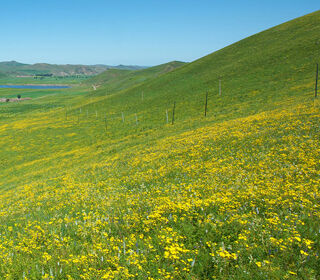
Blog Article

Project SATURN is based on a consortium formed between three cities – Birmingham, Trento (Italy) and Gothenburg (Sweden). Supported by the European Institute of Innovation and Technology (EIT)’s climate knowledge and innovation community (KIC), Project SATURN focuses on climate change, regional design and landscape management.
The University has partnered with Birmingham City Council, as well as organisations from the other two cities involved, to create a more sustainable, effective way of connecting cities and the landscape within it. This will then ensure better results in business, economy, food growth and nature, as well as creating collaborative and citizen-focused solutions.
The opportunity
Cities around the world continue to develop and grow, and Birmingham – with HS2, the Commonwealth Games, Growing Birmingham and several climate-related projects – is no exception. However, this can lead to incomplete climate strategies where cities are analysed without taking into account their topography, natural landscapes, cultural elements and needs. This can result in the lack of adaptation and mitigation plans, the potential of sustainable planning, and sully good food and biomass production. Leading the project is Anastasia Nikologianni, part of the University’s Critical Artistic Thinking in Design (CATiD) research hub, with support from CATiD Head Kathryn Moore and Nick Grayson, Climate Change and Sustainability Manager for Birmingham City Council.
The delivery
Each organisation – Birmingham City University, Birmingham City Council, Fondazione Edmund Mach, University of Trento, Hub Innovazione Trentino, City of Gothenburg and PE (Teknik & Arkitektur) – brings individual strengths and skills to the project. The CATiD team are using their expertise in strategic vision and integrating landscapes, as well as working alongside Birmingham City Council, to connect cities and landscapes together in an effective and sustainable way. They are also using their past experience in other landscape-related projects to create a framework for how the project should be approached. The University will also support with the creation of a holistic landscape vision, strategic development and regional design schemes for the area of the West Midlands.
Looking to the future
The project aims to understand and treat landscape in a different way, engage with it and create awareness and understanding of how the landscape brings everything together. Project SATURN will help establish the importance of landscape within both the Birmingham/West Midlands area and in other European cities. With such activity happening across the Midlands in terms of new strategic schemes and proposals for future resilience, it’s important to capitalise on it and ensure the West Midlands is made a better place to live.
SATURN seeks to establish a strong narrative with public and private stakeholders in order to reconnect them with their landscape identity and geographical (urban, rural, regional, territorial) characteristics. The project will involve more than 50 stakeholders coming from different sectors and territories. The three main impact goals are to support green and resilient cities (optimising the implementation of green infrastructure), restoration and integrated landscapes, and food growth. The project is currently focusing on Europe and is set to end in 2021, but plans to sustain it beyond this timeframe are already in place, with a view to possible collaborations with more cities and institutions in Europe, as well as cities in other continents.
The project will continue to develop and ensure Birmingham’s continued growth is complemented with environmental visions for the landscape. For more information, visit the CATiD webpage.

